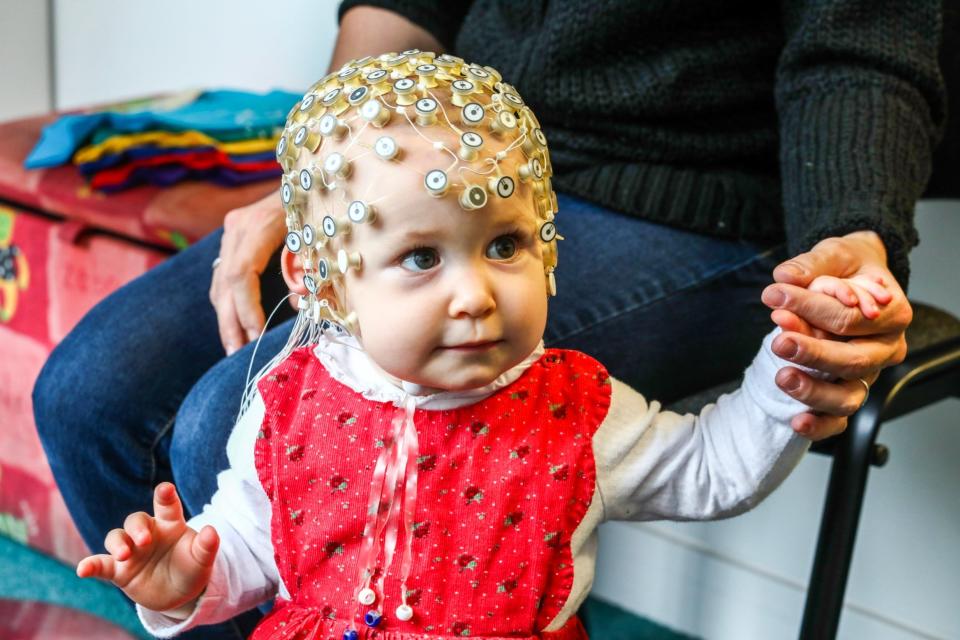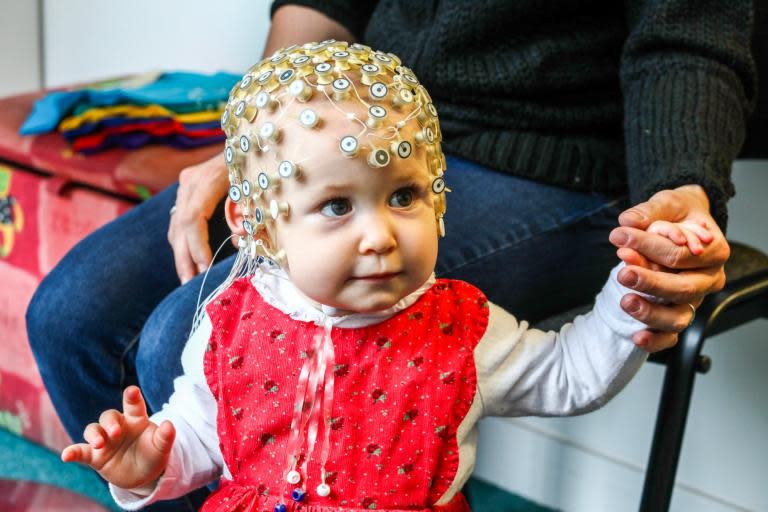The latest brainwave: ‘Octopus’ hat to monitor children’s development
Scientists are studying the brain waves of babies for a research project into child development.
The brains of four and eight-month-olds are scanned using special caps, nicknamed “octopus hats”, that contain more than 120 different sensors and measure electrical activity as they play.
It is part of work by the InfantLab at Goldsmiths, University of London, which it is hoped will help unlock secrets of early cognitive development. It lets researchers detect if babies have different responses to different objects through touch and measure their reactions to having their hand stroked.
Parents in Lewisham have volunteered for the project. The babies feel no electrical sensation on their head from the wired sensors. The cap has 128 channels and each session lasts for about 20 minutes, with 20 to 30 babies needed to create a reliable data set.
Natasa Ganea, who led the research for her PhD, said: “One of the studies is looking at how babies perceive the materials of different objects, for example the difference between fur and metal. Babies don’t seem to notice differences by looking when they’re around four months, they need to touch the objects. The big question was how do babies learn to differentiate?
“When they’re four or eight months old they can’t talk but looking at their brain, and seeing how the brain changes its response depending on the kind of stimulation they receive, gives us an answer.” InfantLab director Dr Caspar Addyman said: “Each little sensor passively detects the voltage on the surface of the skull, which is caused by the brain activity underneath.
“Using this, we can tell which bits of the brain are more active at a given moment.” Zsófia Nacsa, 37, who brings her daughter Elspeth, now 11 months, to Goldsmiths to help the project, said: “I’m curious how Elspeth behaves and I’m looking forward to seeing the results. I think she’s fine with it, she’s a very good girl.”

 Yahoo News
Yahoo News 

